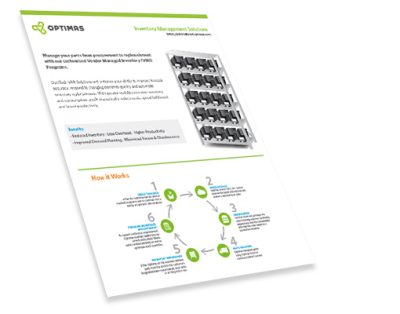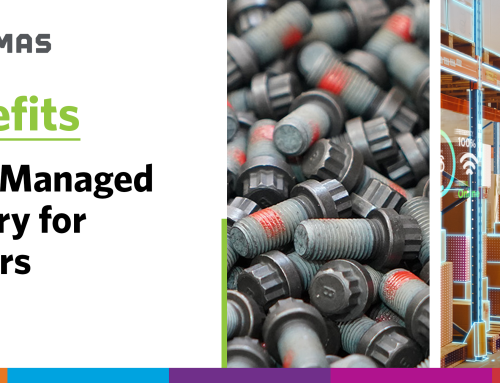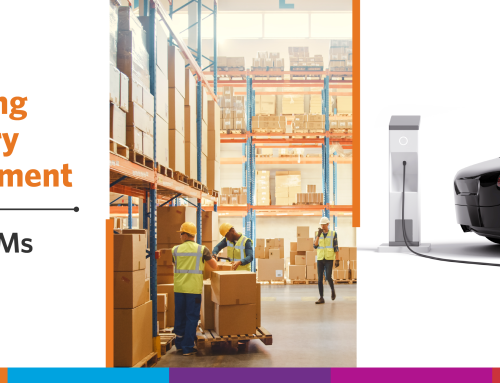
More With Less: Vendor Managed Inventory
Many manufacturers are reassessing their inventory management processes and are uncovering opportunities for increased efficiency. Some businesses have suffered from over-stocking – anticipating shipping delays and lengthy lead times – and others have found themselves suffering from material and part shortages after experiencing unprecedented demand.
For smaller businesses, a non-managed inventory, or one managed solely by the business themselves, is a viable option for operational efficiency. However, medium to large manufacturers – or those experiencing increased demand – may find themselves struggling to keep track of stock, resulting in costly last-minute orders, obsolete parts and overall inefficiency.
An increasing number of businesses are implementing Vendor Managed Inventory solutions, or VMIs, as they seek ways to lower their outgoings and boost their productivity.
How Does a VMI Work?
A VMI involves a supplier taking on all the responsibility for their customer’s parts, ensuring they always have the right parts, at the right time to meet demand.
A vendor managed inventory service also aims to reduce inventory as much as possible, as excess stock can take up valuable physical space, as well as negatively affecting profit and productivity. Excess stock can cost a manufacturer a significant amount of money, as it can be difficult to resell, and requires a considerable number of human resources to move and manage it, all contributing to high cost of ownership.
Using forecasting and demand planning through machine learning, businesses using VMIs will always have full sight of their part consumption, avoiding excess spending and sporadic purchase orders. By continually analysing a business’ inventory consumption, a VMI substitutes multiple, disorganised orders into a refined one from a single supplier, all while reducing total cost of ownership.
Optimas is the leading global supplier of fasteners and supply chain solutions, partnering with a diverse range of manufacturers to optimise their inventories and reduce their expenditure. We recently adopted industry-leading ERP and forecasting software to optimise our own processes, and our advanced OptiTech VMI technologies have become even more efficient as a result.
Offering both full-service and self-managed solutions, our JIT and Kanban systems use predictive analytics and machine learning to automate inventory replenishment and, with a firm reliance on data, our partners have access to customised, real-time reports for greater transparency into their Class-C part and fastener inventory consumption.
The Benefits of Inventory Management
Some experts have suggested that the cost for a business to add in just ten extra suppliers every five years is more than $1 million and, with an aim to streamline supply and reduce our partners’ total cost of ownership, we streamline parts from over 4000 global suppliers into just one order for our customers.
In one instance, Optimas partnered with a medical manufacturer who was suffering from both an overstocked inventory and product shortages. After implementing one of our customised inventory management programmes, the manufacturer gained an invaluable insight into their consumption data, leading to a 30% reduction in on-hand inventory, and cost-savings of $70,000.
Combining a wealth of distribution experience with the latest technology, Optimas’ VMI solutions offer a perfect synergy to boost operational efficiency.
As illustrated by the above example, managed inventories provide a wealth of economic and organisational benefits to businesses looking to streamline their supply and maximise efficiency. In a time of continued supply instability, data transparency and reliable inventories will pave the way for increased manufacturing productivity. Get in touch with us to optimise your operations.
Request a copy of our inventory management solutions guide







